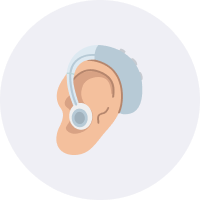As the weather warms up and we shake off the winter chill, spring brings a fresh opportunity to refocus on your health and wellbeing.
You may have heard news over the past few years that our brains and our bodies are linked in more ways than we used to think, with several studies finding a definite connection between our mental health and physical health. So, it's not surprising that mental health concerns can have significant repercussions on the body.
Research shows that individuals with common mental health conditions, including mood disorders, anxiety, and substance abuse, often also suffer from chronic physical illnesses such as cardiovascular disease and diabetes. We also know that people who have conditions such as depression and anxiety can experience fatigue, insomnia, headaches, and restlessness, as well as being more likely to engage in unhealthy coping mechanisms, such as smoking and excessive alcohol consumption, which can go on to exacerbate health issues even further.
One recent Australian study found that 42% of those living with mental illness also suffer from chronic physical conditions. This creates a cycle, with both the mental illness and the chronic physical conditions having an ongoing effect on mental and physical health. Without support, the personal and public health implications can be severe - shortened lifespans, reduced family stability, and increased socioeconomic disadvantage representing some potential risks.
Want to take care of your physical and mental health? Here are seven easy ways.
Incorporate physical activity: Regular exercise releases feel-good chemicals like endorphins and serotonin in your brain. Exercising with friends is even better because it helps to build social connections, which is also great for your mental health. Try to get at least 30 minutes of physical activity each day, but even a 10-minute brisk walk can help boost your mental alertness, energy, and mood. Any amount of physical activity is better than none, so if you’re a beginner, be gentle with yourself, start small, and gradually increase your intensity and duration over time.
Maintain a healthy diet: What we eat plays a significant role in our mental health, and a healthy diet has been linked to the prevention of conditions such as depression and dementia. Try to have a well-balanced diet that includes plenty of fresh fruit and vegetables (the more colours, the better), adequate amounts of protein, essential fats, complex carbohydrates, vitamins, minerals, and water.
Get enough quality sleep: It’s not just about getting enough sleep; it’s also about the quality of our sleep. Good quality sleep allows our bodies to rest and keep us healthy. Try to keep to a regular sleep routine, including waking up and going to sleep around the same time each day - even on weekends. Try to plan ahead and have time to wind down before you go to sleep, including avoiding blue light from phone screens, TVs or computers for at least two to three hours before you want to go to sleep.
Stop smoking: There’s no getting around it: smoking is unhealthy and highly addictive. Not only that, smoking has been shown to increase anxiety and tension in smokers, and encourage the brain to stop producing dopamine, our ‘feel good’ chemical, creating a cycle of nicotine addiction. If you’d like help to stop smoking and improve your health, talk to your doctor or contact Quit HQ.
Manage stress effectively: Stress is a natural part of life, but if not managed, it can affect our appetite, energy levels, digestion, and sleep. Learning to manage stress in a healthy way, including meditation, breathing techniques, yoga and tai chi, can help build your resilience, which can also help you to stay mentally and physically healthier.
Reduce exposure to social media: Being hooked into the 24-hour news cycle, and all the social posts of your online friends can wear you out and bombard you with negativity. If you feel yourself getting tense while you’re online, it could help to limit your news and social media time, and focus instead on engaging in activities you enjoy, or getting outside in the sunshine and fresh air.
Cultivate social connections: Human beings have an innate need for social connection, our connection with our communities is as important to our health as food and water. Feeling lonely or isolated can have a negative effect on our mental health, and therefore, our physical health. Don’t wait to be asked; reach out to family and friends regularly and schedule in some time together, join a group with a common interest, try volunteering to find more purpose in your life, or challenge yourself to try something new.
In addition to these steps for maintaining your mental and physical well-being, it's important to note the role that mental wellness services play in breaking the cycle of challenges. Services like psychology, hypnotherapy, and counseling go beyond addressing specific concerns, empowering you to build a foundation for lasting mental and physical well-being.
With Union Health, you can ensure you and your family have access benefits for mental wellness services with our great range of our extras covers.
This general information, while intended to be helpful, is not individual health advice. Always consult a healthcare professional before making health decisions. While the information is curated with care, its accuracy, completeness, or recency cannot be guaranteed. We cannot be held responsible for any loss incurred from acting on this information. Content developed in partnership with Health and Wellbeing Queensland.
Information source: https://hw.qld.gov.au/blog/7-easy-ways-to-stay-mentally-and-physically-healthy
























